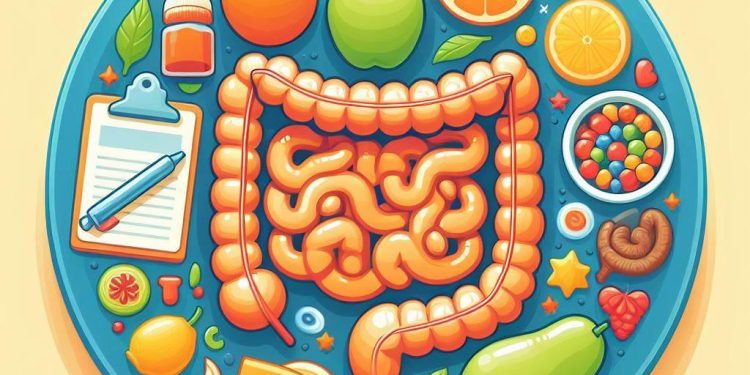Colon health is a vital aspect of overall well-being, and preventive measures, such as colonoscopies, play a crucial role in maintaining it. Regularly monitoring its well-being through colonoscopies is vital for preventing colorectal cancer, one of the leading causes of cancer deaths.
In this article, we will explore the connection between diet and colon health, focusing on dietary choices before and after a colonoscopy to ensure optimal results.
Table of Contents
Diet for Optimal Colon Health
Fibre is Essential
One cornerstone of a colon-friendly diet is adequate fiber intake. Fibre promotes regular bowel movements, preventing constipation and contributing to a healthy colon. Good sources of fiber include fruits like apples and berries, vegetables such as broccoli and carrots, whole grains like brown rice and oats, and legumes like lentils and beans. Try incorporating a delicious high-fibre recipe, like a quinoa salad with colorful vegetables, into your regular meals.
Aim for 25-35 grams of fiber daily, incorporating a variety of sources like:
- Soluble fiber: Found in oatmeal, apples, berries, and psyllium husk, it feeds your gut bacteria and makes bowel movements soft and easy.
- Insoluble fiber: Present in whole grains, vegetables like broccoli and carrots, and nuts, it adds bulk to stool and keeps things moving quickly.
Hydration is Key
Water is the unsung hero of digestive health. Staying adequately hydrated ensures the smooth functioning of the digestive system. Aim for at least 8 glasses of water per day, and consider herbal teas as a flavourful alternative. These hydrating options contribute to overall colon health by maintaining proper moisture levels in the digestive tract.
Minimize Intake of Processed Food
Certain foods can be detrimental to colon health. Red meat, processed foods, refined sugars, and excessive saturated fats should be limited. These items have been linked to an increased risk of colon cancer and can negatively impact your digestive system. Go for for lean proteins, whole grains, and a variety of fruits and vegetables to support a healthier colon.
Understanding Colonoscopy
According to Consultant Surgeon Dr Sujit Singh Gill, a colonoscopy is a diagnostic, medical procedure that involves the examination of the colon and rectum using a colonoscope. This instrument is a long, narrow, flexible tube with a camera at its end. This procedure is a vital tool in detecting and preventing colorectal diseases, such as polyps or cancer. Colonoscopies are recommended for individuals over the age of 50, or earlier for those with a family history or specific risk factors.
Pre-Colonoscopy Diet Preparation
Clearing the Way
The pre-colonoscopy diet is designed to ensure a clear colon for accurate examination. Follow a timeline that includes a transition to a low-fibre diet followed by a clear liquid diet. Manage hunger and thirst during the clear liquid phase by incorporating broths, clear juices, and gelatine. This preparation enhances the effectiveness of the colonoscopy.
Supplement Intake
Consider the benefits of probiotics in supporting gut health before and after a colonoscopy. Probiotics, found in supplements and fermented foods like yogurt, may aid in restoring a healthy balance of gut bacteria. Consult your doctor for personalized advice on probiotic strains that suit your specific needs.
Post-Colonoscopy Recovery Diet
Gentle Reintroduction of Food
After a colonoscopy, reintroduce solid foods gradually to prevent irritation and discomfort. Begin with easily digestible options like broth, yogurt, and crackers, progressing slowly to softer, bland foods. This approach eases the digestive system back into its regular routine.
Hydration and Electrolytes
Rehydrate and replenish electrolytes lost during bowel preparation by consuming electrolyte-rich foods such as bananas and sports drinks. Water remains essential in this phase, aiding the body in recovering from the procedure.
Listen to Your Body
Pay attention to your body’s signals after a colonoscopy. If discomfort persists, consider the possibility of food sensitivity and temporarily eliminate certain foods. It’s crucial to adjust your diet based on how your body responds to promote a smooth recovery.
Your colon is your silent partner in health, and what you eat directly impacts its well-being. As such, adopting a healthy diet significantly contributes to long-term colon health. By making informed choices and understanding the importance of diet in the pre- and post-colonoscopy phases, individuals can actively contribute to their overall well-being.
Remember, these tips serve as general guidelines, and it’s advisable to consult an accredited colonoscopy clinic for personalized advice, and maintain regular colonoscopies for preventive care. Your colon’s health is an investment in a healthier and happier future.


 Home
Home









